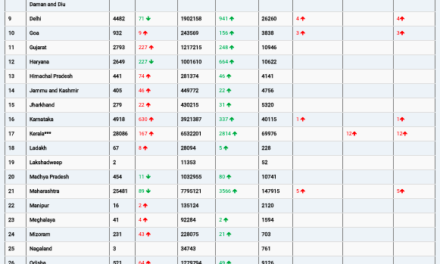In the digital age, the phenomenon of doomscrolling—an incessant consumption of negative news—has become a defining and troubling trend. This behavior, where individuals are magnetically drawn to unsettling stories, significantly impacts our perception of life and humanity. A recent study from Flinders University sheds light on the existential and psychological consequences of this habit.
The Allure of Negative News
In an era where we are continuously bombarded with a plethora of events and narratives, from the admirable to the deplorable, doomscrolling has become alarmingly prevalent. The study, led by Reza Shabahang from the College of Education, Psychology, and Social Work at Flinders, explores this behavior from an existential perspective. Shabahang defines doomscrolling as the act of incessantly browsing distressing news on social media, encompassing tales of calamities, terror attacks, and conspiracy theories.
Mental Health Impacts
Shabahang’s research reveals that doomscrolling can have dire consequences on our mental health. “Doomscrolling can leave us feeling stress, anxiety, despair, and questioning the meaning of life,” Shabahang explains. The study highlights how consuming negative news frequently can lead to vicarious trauma, where individuals experience psychological effects similar to those directly involved in traumatic events. Symptoms akin to post-traumatic stress disorder (PTSD), including anxiety and despair, were reported by some participants.
Cultural Insights and Misanthropy
The researchers surveyed 800 university students from two distinctly diverse cultures: an Eastern collective culture (Iran) and a Western individualistic culture (the United States). The study examined how excessive consumption of negative news shapes individuals’ thoughts and feelings about their existence. The findings confirmed a correlation between doomscrolling and existential anxiety—concerns about one’s existence, life, and death. Interestingly, in the Iranian sample, doomscrolling emerged as a significant predictor of misanthropy—a general resentment of people.
Shabahang notes, “Constant exposure to negative news can threaten our beliefs about our mortality and control over our lives. It can also negatively affect how we view people and the world around us.”
Navigating the Digital Landscape Mindfully
The study underscores the importance of monitoring our online habits, taking regular breaks from social media, and limiting exposure to negative news. Shabahang advises, “People should pay attention to how much time they are spending on social media and be aware of its impact on their emotions, thoughts, and feelings, especially regarding negative news and events.”
Practical Tips to Combat Doomscrolling
To counter the adverse effects of doomscrolling, practical strategies can make a considerable difference. Setting specific time limits for social media usage and establishing “tech-free” zones or periods in your day are essential steps. Engaging in alternative activities like reading, exercising, or meditating can help break the cycle of constant online negativity. Additionally, curating your news feed to follow uplifting and positive sources can balance the narrative you consume.
Shabahang emphasizes, “By becoming more aware of our online habits and taking small steps to address them, we can improve our overall mental well-being.”
A Healthier Perspective
In the vast digital landscape, it’s easy to lose oneself in distressing narratives. However, awareness of our online habits and implementing changes can be the first step toward improved mental well-being and a healthier perspective on life and humanity.
The study is published in the journal Computers in Human Behavior Reports.











